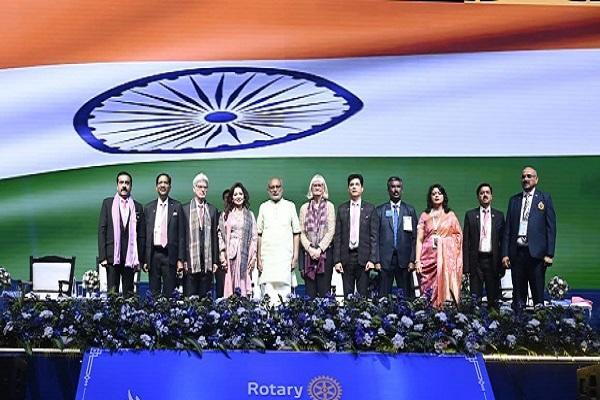
AI, Creators, and Tier-2 Cities Power India’s Startup Growth
India’s startup ecosystem has been witnessing unprecedented growth in recent years, driven by the adoption of cutting-edge technologies, innovative business models, and a shift in focus towards smaller cities. A recent report by Meta and Accenture (A&M) has shed light on the trends that are reshaping the startup landscape in India.
According to the report, 70% of Indian startups are already using Artificial Intelligence (AI) to drive their business, while 67% have adopted omnichannel models to connect with their customers. Moreover, a staggering 95% of startups are targeting smaller cities, beyond the traditional hubs of Bengaluru, Mumbai, and Delhi. These trends are having a profound impact on how startups scale, connect with users, and build future-ready brands across India.
AI: The Game-Changer
The adoption of AI is a significant development in India’s startup ecosystem. AI is enabling startups to automate processes, improve customer engagement, and gain valuable insights into consumer behavior. With AI, startups can analyze large datasets, identify patterns, and make data-driven decisions to drive growth.
The report highlights that AI is being used in various ways, including:
- Chatbots: Many startups are using chatbots to provide 24/7 customer support, reducing response times, and improving overall customer experience.
- Predictive analytics: AI-powered predictive analytics is helping startups identify potential customers, anticipate demand, and optimize supply chains.
- Personalization: AI is enabling startups to personalize user experiences, recommend products, and offer targeted promotions.
- Content creation: AI is being used to generate high-quality content, such as blog posts, social media posts, and product descriptions.
Omnichannel Models: The New Normal
The rise of omnichannel models is another significant trend in India’s startup ecosystem. Omnichannel models involve providing a seamless customer experience across multiple touchpoints, including social media, mobile apps, websites, and physical stores.
The report suggests that 67% of startups are adopting omnichannel models to connect with their customers. This shift towards omnichannel models is driven by the need to provide customers with a consistent and personalized experience, regardless of the channel they use.
Omnichannel models are helping startups to:
- Increase customer engagement: By providing a seamless experience across multiple channels, startups can increase customer engagement and loyalty.
- Improve customer retention: Omnichannel models help startups to retain customers by providing them with a consistent experience, regardless of the channel they use.
- Enhance customer insights: Omnichannel models provide startups with valuable insights into customer behavior, preferences, and pain points.
Tier-2 and Tier-3 Cities: The Next Frontier
The report highlights that 95% of startups are targeting smaller cities, beyond the traditional hubs of Bengaluru, Mumbai, and Delhi. This shift towards Tier-2 and Tier-3 cities is driven by the need to tap into the vast and growing consumer base in these regions.
Tier-2 and Tier-3 cities offer startups several advantages, including:
- Lower costs: Rent, labor, and other operational costs are lower in Tier-2 and Tier-3 cities, making it an attractive option for startups.
- Untapped market: Tier-2 and Tier-3 cities have a vast and growing consumer base, with increasing purchasing power.
- Government support: The Indian government has launched several initiatives to support startups in Tier-2 and Tier-3 cities, including the Startup India initiative.
Creator Economy: The Future of Branding
The report also highlights the significance of the creator economy in India’s startup ecosystem. The creator economy involves partnering with influencers, content creators, and thought leaders to build a brand and connect with customers.
According to the report, 88% of startups are partnering with influencers early on to build their brand and reach their target audience. This shift towards the creator economy is driven by the need to build trust and credibility with customers, and to differentiate themselves from competitors.
The creator economy offers startups several benefits, including:
- Increased brand awareness: Partnering with influencers and content creators can increase brand awareness and reach a wider audience.
- Improved credibility: Partnering with thought leaders and influencers can improve credibility and trust with customers.
- Targeted marketing: The creator economy allows startups to target specific audiences and demographics, increasing the effectiveness of their marketing efforts.
Conclusion
India’s startup ecosystem is undergoing a significant transformation, driven by the adoption of AI, omnichannel models, Tier-2 and Tier-3 city expansion, and the creator economy. These trends are reshaping how startups scale, connect with users, and build future-ready brands across India.
As the Indian startup ecosystem continues to evolve, it is essential for startups to stay ahead of the curve and leverage these trends to drive growth and success. By adopting AI, omnichannel models, and partnering with influencers, startups can tap into new markets, improve customer engagement, and build a strong brand in the competitive Indian startup landscape.
Source:






